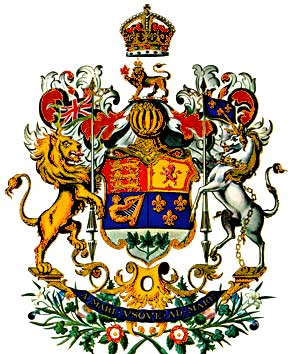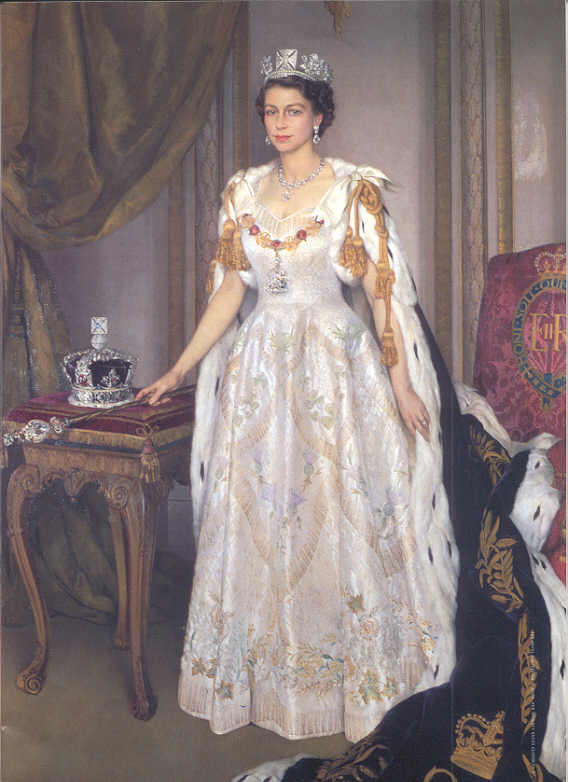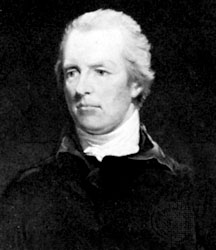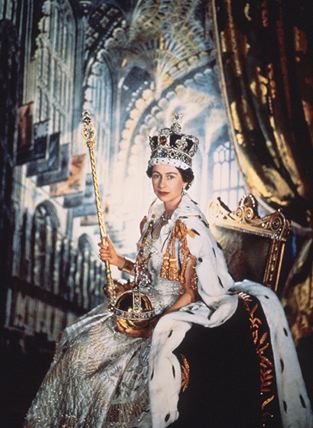[+] HONOURING OUR PATRON, SIR WINSTON CHURCHILL, VICTOR OF THE ENGLISH-SPEAKING PEOPLES
- Sir Winston Churchill
- THE CHURCHILL CENTRE
- Churchill and the Great Republic
- The Churchill Society, London
- The International Churchill Society of the UK
- The International Churchill Society, Canada
- The Sir Winston Churchill Society of British Columbia
- Churchill Society for the Advancement of Parliamentary Democracy
- The Battle of Britain Historical Society
- The Last Romantic Zionist Gentile
- THEIR FINEST HOUR
- Churchill Books
- Chartwell House
- Chartwell and Churchill
- BLENHEIM PALACE
- The Duke of Marlborough
- Churchill College, Cambridge
- Churchill Archives Centre
- Winston Churchill Memorial Trust
- Buried in Bladon

[+] HONOURING OUR QUEEN, ELIZABETH THE SECOND, ON THE 80TH YEAR OF HER BIRTH (1926 - 2006)
- Westminster Abbey
- The British Monarchy
- The Queen's 80th Birthday
- Royal Art & Residences
- The Royal Family
- History of the Monarchy
- Royal Insight Magazine
- Constitutional Monarchist Association
- Monarchist League of Canada
- Canadian Monarchist Online
- Australian Monarchist League
- Australian Monarchist Alliance
- Australians for Constitutional Monarchy
- Australian Republic Unplugged
- Monarchist League of New Zealand
- American Monarchist League
- Monarchist Society of America

[+] HONOURING OUR KING, SAINT EDWARD THE CONFESSOR, ON THE 1000TH YEAR OF HIS BIRTH (1005 - 2005)
- Westminster Abbey
- Wikipedia: Edward the Confessor
- Britannia: Edward III the Confessor
- The Three Kings of 1066
- BBC History: King Edward
- Spartacus: Edward the Confessor
- Anglican Justus: Edward the Confessor
- New Advent; St. Edward the Confessor
- Medieval History: King Edward
- Early British Kingdoms
- Saints O'the Day
- Eyewitness to History
- Patron Saints Index
- Brittanica: King Edward
- Anglican Justus: Edward the Confessor
- New Advent; St. Edward the Confessor
- Medieval History: King Edward
- Early British Kingdoms
- Saint Edward the Confessor
- Famous Men of the Middle Ages
- New Advent; St. Edward the Confessor
- Medieval History: King Edward
- Early British Kingdoms
- Saints O'the Day
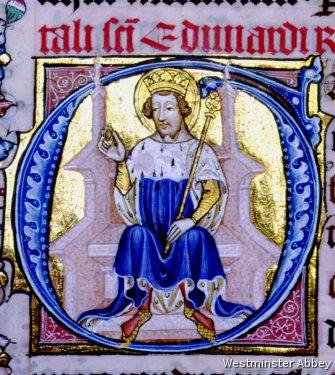
[+] HONOURING OUR HERO, LORD NELSON, ON THE BICENTENNIAL OF THE BATTLE OF TRAFALGAR (1805 - 2005)
- Trafalgar 200th
- The Nelson Society
- The 1805 Club
- Admiral Lord Nelson and His Navy
- HMS Victory
- Nelson's Victory
- Victory 2005
- Trafalgar 200
- The New Trafalgar Dispatch
- Art Marine
- Sea Britain 2005
- National Maritime Museum
- Maritime Britain
- Black Dog Studios
- Royal Naval Museum
- Royal Navy
- Royal Canadian Navy
- Royal Australian Navy
- Royal New Zealand Navy
- United States Navy
- U.S. Naval Institute
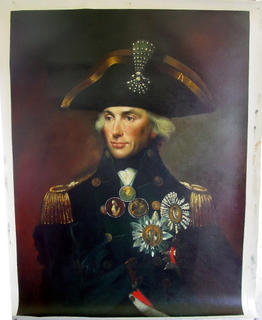
[+] HONOURING OUR SONS, THE QUEEN'S COMMONWEALTH SOLDIERS KILLED IN THE 'WAR ON TERROR'
 Chief Warrant Officer Robert Girouard, 46, Royal Canadian Regiment, Nov 27, 2006 (Afstan)
Chief Warrant Officer Robert Girouard, 46, Royal Canadian Regiment, Nov 27, 2006 (Afstan)
 Corporal Albert Storm, 36, Royal Canadian Regiment, Nov 27, 2006 (Afstan)
Corporal Albert Storm, 36, Royal Canadian Regiment, Nov 27, 2006 (Afstan)
 Staff Sergeant Sharron Elliott, 34, Intelligence Corps, Nov 12, 2006 (Iraq)
Staff Sergeant Sharron Elliott, 34, Intelligence Corps, Nov 12, 2006 (Iraq)
 Warrant Officer 2nd Class Lee Hopkins, 35, Royal Corps of Signals, Nov 12, 2006 (Iraq)
Warrant Officer 2nd Class Lee Hopkins, 35, Royal Corps of Signals, Nov 12, 2006 (Iraq)
 Marine Jason Hylton, 33, Royal Marines, Nov 12, 2006 (Iraq)
Marine Jason Hylton, 33, Royal Marines, Nov 12, 2006 (Iraq)
 Corporal Ben Nowak, 27, Royal Marines, Nov 12, 2006 (Iraq)
Corporal Ben Nowak, 27, Royal Marines, Nov 12, 2006 (Iraq)
 Kingsman Jamie Hancock, 19, The Duke of Lancaster's Regiment, Nov 6, 2006 (Iraq)
Kingsman Jamie Hancock, 19, The Duke of Lancaster's Regiment, Nov 6, 2006 (Iraq)
 Sergeant Michael T. Seeley (Cdn), 27, United States Army, Oct 30, 2006 (Iraq)
Sergeant Michael T. Seeley (Cdn), 27, United States Army, Oct 30, 2006 (Iraq)
 Lieutenant Tom Tanswell, 27, 12th Regiment Royal Artillery, Oct 27, 2006 (Iraq)
Lieutenant Tom Tanswell, 27, 12th Regiment Royal Artillery, Oct 27, 2006 (Iraq)
 Marine Gary Wright, 22, Royal Marines, Oct 19, 2006 (Afstan)
Marine Gary Wright, 22, Royal Marines, Oct 19, 2006 (Afstan)
 Sergeant Darcy Tedford, Royal Canadian Regiment, Oct 14, 2006 (Afstan)
Sergeant Darcy Tedford, Royal Canadian Regiment, Oct 14, 2006 (Afstan)
 Private Blake Williamson, Royal Canadian Regiment, Oct 14, 2006 (Afstan)
Private Blake Williamson, Royal Canadian Regiment, Oct 14, 2006 (Afstan)
 Trooper Mark Andrew Wilson, Royal Canadian Dragoons, Oct 7, 2006 (Afstan)
Trooper Mark Andrew Wilson, Royal Canadian Dragoons, Oct 7, 2006 (Afstan)
 Sergeant Craig Paul Gillam, 40, Royal Canadian Dragoons, Oct 3, 2006 (Afstan)
Sergeant Craig Paul Gillam, 40, Royal Canadian Dragoons, Oct 3, 2006 (Afstan)
 Corporal Robert Thomas James Mitchell, 32, Royal Canadian Dragoons, Oct 3, 2006 (Afstan)
Corporal Robert Thomas James Mitchell, 32, Royal Canadian Dragoons, Oct 3, 2006 (Afstan)
 Lance Corporal Dennis Brady, 37, Royal Army Medical Corps, Oct 1, 2006 (Iraq)
Lance Corporal Dennis Brady, 37, Royal Army Medical Corps, Oct 1, 2006 (Iraq)
 Private Josh Klukie, 23, Royal Canadian Regiment, Sep 29, 2006 (Afstan)
Private Josh Klukie, 23, Royal Canadian Regiment, Sep 29, 2006 (Afstan)
 Corporal Glen Arnold, 32, 2 Field Ambulance, Sep 18, 2006 (Afstan)
Corporal Glen Arnold, 32, 2 Field Ambulance, Sep 18, 2006 (Afstan)
 Private David Byers, 22, Princess Patricia's Canadian Light Infantry, Sep 18, 2006 (Afstan)
Private David Byers, 22, Princess Patricia's Canadian Light Infantry, Sep 18, 2006 (Afstan)
 Corporal Shane Keating, Princess Patricia's Canadian Light Infantry, Sep 18, 2006 (Afstan)
Corporal Shane Keating, Princess Patricia's Canadian Light Infantry, Sep 18, 2006 (Afstan)
 Corporal Keith Morley, Princess Patricia's Canadian Light Infantry, Sep 18, 2006 (Afstan)
Corporal Keith Morley, Princess Patricia's Canadian Light Infantry, Sep 18, 2006 (Afstan)
 Gunner Lee Darren Thornton, 22, 12th Regiment Royal Artillery, Sep 7, 2006 (Iraq)
Gunner Lee Darren Thornton, 22, 12th Regiment Royal Artillery, Sep 7, 2006 (Iraq)
 Lance Corporal Luke McCulloch, 21, Royal Irish Regiment, Sep 6, 2006 (Afstan)
Lance Corporal Luke McCulloch, 21, Royal Irish Regiment, Sep 6, 2006 (Afstan)
 Lance Corporal Paul Muirhead, 29, Royal Irish Regiment, Sep 6, 2006 (Afstan)
Lance Corporal Paul Muirhead, 29, Royal Irish Regiment, Sep 6, 2006 (Afstan)
 Corporal Mark William Wright, 27, The Parachute Regiment, Sep 6, 2006 (Afstan)
Corporal Mark William Wright, 27, The Parachute Regiment, Sep 6, 2006 (Afstan)
 Gunner Samuela Vanua, 27, 12th Regiment Royal Artillery (Fiji), Sep 4, 2006 (Iraq)
Gunner Samuela Vanua, 27, 12th Regiment Royal Artillery (Fiji), Sep 4, 2006 (Iraq)
 Gunner Stephen Robert Wright, 20, 12th Regiment Royal Artillery, Sep 4, 2006 (Iraq)
Gunner Stephen Robert Wright, 20, 12th Regiment Royal Artillery, Sep 4, 2006 (Iraq)
 Private Mark Anthony Graham, 33, Royal Canadian Regiment, Sep 4, 2006 (Afstan)
Private Mark Anthony Graham, 33, Royal Canadian Regiment, Sep 4, 2006 (Afstan)
 Private Craig O'Donnell, 24, Argyll and Sutherland Highlanders, Sep 4, 2006 (Afstan)
Private Craig O'Donnell, 24, Argyll and Sutherland Highlanders, Sep 4, 2006 (Afstan)
 Private William Jonathan James Cushley, Royal Canadian Regiment, Sep 3, 2006 (Afstan)
Private William Jonathan James Cushley, Royal Canadian Regiment, Sep 3, 2006 (Afstan)
 Warrant Officer Frank Robert Mellish, 38, Royal Canadian Regiment, Sep 3, 2006 (Afstan)
Warrant Officer Frank Robert Mellish, 38, Royal Canadian Regiment, Sep 3, 2006 (Afstan)
 Warrant Officer Richard Francis Nolan, 39, Royal Canadian Regiment, Sep 3, 2006 (Afstan)
Warrant Officer Richard Francis Nolan, 39, Royal Canadian Regiment, Sep 3, 2006 (Afstan)
 Sergeant Shane Stachnik, 2 Combat Engineer Regiment, Sep 3, 2006 (Afstan)
Sergeant Shane Stachnik, 2 Combat Engineer Regiment, Sep 3, 2006 (Afstan)
 Flight Sergeant Gary Wayne Andrews, Royal Air Force 120 Squadron, Sep 2, 2006 (Afstan)
Flight Sergeant Gary Wayne Andrews, Royal Air Force 120 Squadron, Sep 2, 2006 (Afstan)
 Flight Sergeant Stephen Beattie, Royal Air Force 120 Squadron, Sep 2, 2006 (Afstan)
Flight Sergeant Stephen Beattie, Royal Air Force 120 Squadron, Sep 2, 2006 (Afstan)
 Flight Sergeant Gerard Martin Bell, Royal Air Force 120 Squadron, Sep 2, 2006 (Afstan)
Flight Sergeant Gerard Martin Bell, Royal Air Force 120 Squadron, Sep 2, 2006 (Afstan)
 Flight Sergeant Adrian Davies, Royal Air Force 120 Squadron, Sep 2, 2006 (Afstan)
Flight Sergeant Adrian Davies, Royal Air Force 120 Squadron, Sep 2, 2006 (Afstan)
 Lance Corporal Oliver Simon Dicketts, The Parachute Regiment, Sep 2, 2006 (Afstan)
Lance Corporal Oliver Simon Dicketts, The Parachute Regiment, Sep 2, 2006 (Afstan)
 Flight Lieutenant Steven Johnson, Royal Air Force 120 Squadron, Sep 2, 2006 (Afstan)
Flight Lieutenant Steven Johnson, Royal Air Force 120 Squadron, Sep 2, 2006 (Afstan)
 Sergeant Benjamin James Knight, Royal Air Force 120 Squadron, Sep 2, 2006 (Afstan)
Sergeant Benjamin James Knight, Royal Air Force 120 Squadron, Sep 2, 2006 (Afstan)
 Sergeant John Joseph Langton, Royal Air Force 120 Squadron, Sep 2, 2006 (Afstan)
Sergeant John Joseph Langton, Royal Air Force 120 Squadron, Sep 2, 2006 (Afstan)
 Flight Lieutenant Leigh Anthony Mitchelmore, Royal Air Force 120 Squadron, Sep 2, 2006 (Afstan)
Flight Lieutenant Leigh Anthony Mitchelmore, Royal Air Force 120 Squadron, Sep 2, 2006 (Afstan)
 Flight Lieutenant Gareth Rodney Nicholas, Royal Air Force 120 Squadron, Sep 2, 2006 (Afstan)
Flight Lieutenant Gareth Rodney Nicholas, Royal Air Force 120 Squadron, Sep 2, 2006 (Afstan)
 Sergeant Gary Paul Quilliam, Royal Air Force 120 Squadron, Sep 2, 2006 (Afstan)
Sergeant Gary Paul Quilliam, Royal Air Force 120 Squadron, Sep 2, 2006 (Afstan)
 Flight Lieutenant Allan James Squires, Royal Air Force 120 Squadron, Sep 2, 2006 (Afstan)
Flight Lieutenant Allan James Squires, Royal Air Force 120 Squadron, Sep 2, 2006 (Afstan)
 Flight Lieutenant Steven Swarbrick, Royal Air Force 120 Squadron, Sep 2, 2006 (Afstan)
Flight Lieutenant Steven Swarbrick, Royal Air Force 120 Squadron, Sep 2, 2006 (Afstan)
 Marine Joseph David Windall, Royal Marines, Sep 2, 2006 (Afstan)
Marine Joseph David Windall, Royal Marines, Sep 2, 2006 (Afstan)
 Ranger Anare Draiva (citizen of Fiji), 27, Royal Irish Regiment, Sep 1, 2006 (Afstan)
Ranger Anare Draiva (citizen of Fiji), 27, Royal Irish Regiment, Sep 1, 2006 (Afstan)
 Corporal David Braun, 27, Princess Patricia's Canadian Light Infantry, Aug 22, 2006 (Afstan)
Corporal David Braun, 27, Princess Patricia's Canadian Light Infantry, Aug 22, 2006 (Afstan)
 Corporal Bryan James Budd, 29, The Parachute Regiment, Aug 20, 2006 (Afstan)
Corporal Bryan James Budd, 29, The Parachute Regiment, Aug 20, 2006 (Afstan)
 Lance Corporal Sean Tansey, 26, The Life Guards, Household Cavalry, Aug 12, 2006 (Afstan)
Lance Corporal Sean Tansey, 26, The Life Guards, Household Cavalry, Aug 12, 2006 (Afstan)
 Corporal Andrew James Eykelenboom, 23, 1st Field Ambulance, Aug 11, 2006 (Afstan)
Corporal Andrew James Eykelenboom, 23, 1st Field Ambulance, Aug 11, 2006 (Afstan)
 Private Leigh Reeves, 25, Royal Logistic Corps, Aug 9, 2006 (Afstan)
Private Leigh Reeves, 25, Royal Logistic Corps, Aug 9, 2006 (Afstan)
 Master Corporal Jeffrey Scott Walsh, 33, Princess Patriciaâs Canadian Light Infantry, Aug 9, 2006 (Afstan)
Master Corporal Jeffrey Scott Walsh, 33, Princess Patriciaâs Canadian Light Infantry, Aug 9, 2006 (Afstan)
 Private Andrew Barrie Cutts, 19, Royal Logistic Corps, Aug 6, 2006 (Afstan)
Private Andrew Barrie Cutts, 19, Royal Logistic Corps, Aug 6, 2006 (Afstan)
 Master Corporal Raymond Arndt, 31, The Loyal Edmonton Regiment, Aug 5, 2006 (Afstan)
Master Corporal Raymond Arndt, 31, The Loyal Edmonton Regiment, Aug 5, 2006 (Afstan)
 Private Kevin Dallaire, 22, Princess Patriciaâs Canadian Light Infantry, Aug 3, 2006 (Afstan)
Private Kevin Dallaire, 22, Princess Patriciaâs Canadian Light Infantry, Aug 3, 2006 (Afstan)
 Sergeant Vaughn Ingram, 35, Princess Patriciaâs Canadian Light Infantry, Aug 3, 2006 (Afstan)
Sergeant Vaughn Ingram, 35, Princess Patriciaâs Canadian Light Infantry, Aug 3, 2006 (Afstan)
 Corporal Bryce Jeffrey Keller, Princess Patriciaâs Canadian Light Infantry, Aug 3, 2006 (Afstan)
Corporal Bryce Jeffrey Keller, Princess Patriciaâs Canadian Light Infantry, Aug 3, 2006 (Afstan)
 Corporal Christopher Jonathan Reid, 34, Princess Patriciaâs Canadian Light Infantry, Aug 3, 2006 (Afstan)
Corporal Christopher Jonathan Reid, 34, Princess Patriciaâs Canadian Light Infantry, Aug 3, 2006 (Afstan)
 Captain Alex Eida, 29, 7 Parachute Regiment, Royal Horse Artillery, Aug 1, 2006 (Afstan)
Captain Alex Eida, 29, 7 Parachute Regiment, Royal Horse Artillery, Aug 1, 2006 (Afstan)
 2nd Lieutenant Ralph Johnson, 24, Blues and Royals, Household Cavalry, Aug 1, 2006 (Afstan)
2nd Lieutenant Ralph Johnson, 24, Blues and Royals, Household Cavalry, Aug 1, 2006 (Afstan)
 Lance Corporal Ross Nicholls, 27, Blues and Royals, Household Cavalry, Aug 1, 2006 (Afstan)
Lance Corporal Ross Nicholls, 27, Blues and Royals, Household Cavalry, Aug 1, 2006 (Afstan)
 Corporal Matthew Cornish, 29, 1st Battalion, The Light Infantry, Aug 1, 2006 (Iraq)
Corporal Matthew Cornish, 29, 1st Battalion, The Light Infantry, Aug 1, 2006 (Iraq)
 Major Paeta Derek Hess-von Kruedener, Princess Patriciaâs Canadian Light Infantry, July 25, 2006 (Lebanon)
Major Paeta Derek Hess-von Kruedener, Princess Patriciaâs Canadian Light Infantry, July 25, 2006 (Lebanon)
 Corporal Jason Patrick Warren, 29, Black Watch, Royal Highland Regiment of Canada, July 23, 2006 (Afstan)
Corporal Jason Patrick Warren, 29, Black Watch, Royal Highland Regiment of Canada, July 23, 2006 (Afstan)
 Corporal Francisco Gomez, 44, Lord Strathcona's Horse (Royal Canadians), July 23, 2006 (Afstan)
Corporal Francisco Gomez, 44, Lord Strathcona's Horse (Royal Canadians), July 23, 2006 (Afstan)
 Corporal John J. Cosby, 28, 1st Battalion, The Devonshire and Dorset Light Infantry, July 16, 2006 (Iraq)
Corporal John J. Cosby, 28, 1st Battalion, The Devonshire and Dorset Light Infantry, July 16, 2006 (Iraq)
 Corporal Anthony Boneca, 21, Lake Superior Scottish Regiment, July 9, 2006 (Afstan)
Corporal Anthony Boneca, 21, Lake Superior Scottish Regiment, July 9, 2006 (Afstan)
 Private Damien Jackson, 19, 3rd Battalion the Parachute Regiment, England, July 5, 2006 (Afstan)
Private Damien Jackson, 19, 3rd Battalion the Parachute Regiment, England, July 5, 2006 (Afstan)
 Lance Corporal Jabron Hashmi, 24, Intelligence Corps, Birmingham, England, July 1, 2006 (Afstan)
Lance Corporal Jabron Hashmi, 24, Intelligence Corps, Birmingham, England, July 1, 2006 (Afstan)
 Corporal Peter Thorpe, 27, Royal Signals, Barrow-in-Furness, Cumbria, England, July 1, 2006 (Afstan)
Corporal Peter Thorpe, 27, Royal Signals, Barrow-in-Furness, Cumbria, England, July 1, 2006 (Afstan)
 Sergeant Paul Bartlett, 35, Special Reconnaissance Regiment, England, June 27, 2006 (Afstan)
Sergeant Paul Bartlett, 35, Special Reconnaissance Regiment, England, June 27, 2006 (Afstan)
 Captain David Patten, 38, Special Boat Service, Northern Ireland, June 27, 2006 (Afstan)
Captain David Patten, 38, Special Boat Service, Northern Ireland, June 27, 2006 (Afstan)
 Captain Jim Philippson, 29, 7 Parachute Regiment Royal Horse Artillery, June 11, 2006 (Afstan)
Captain Jim Philippson, 29, 7 Parachute Regiment Royal Horse Artillery, June 11, 2006 (Afstan)
 Lance Corporal Paul Farrelly, 27, 1st The Queen's Dragoon Guards (The Welsh Cavalry), May 28, 2006 (Iraq)
Lance Corporal Paul Farrelly, 27, 1st The Queen's Dragoon Guards (The Welsh Cavalry), May 28, 2006 (Iraq)
 Lieutenant Tom Mildinhall, 26, 1st The Queen's Dragoon Guards (The Welsh Cavalry), May 28, 2006 (Iraq)
Lieutenant Tom Mildinhall, 26, 1st The Queen's Dragoon Guards (The Welsh Cavalry), May 28, 2006 (Iraq)
 Captain Nichola Kathleen Sarah Goddard, 26, 1st Royal Canadian Horse Artillery, May 17, 2006 (Afstan)
Captain Nichola Kathleen Sarah Goddard, 26, 1st Royal Canadian Horse Artillery, May 17, 2006 (Afstan)
 Private Adam Morris, 19, 2nd Battalion, The Royal Anglian Regiment, May 13, 2006
Private Adam Morris, 19, 2nd Battalion, The Royal Anglian Regiment, May 13, 2006
 Private Joseva Lewaicei, 25, 2nd Battalion, The Royal Anglian Regiment, May 13, 2006
Private Joseva Lewaicei, 25, 2nd Battalion, The Royal Anglian Regiment, May 13, 2006
 Wing Commander John Coxen, 46, Royal Airforce, RAF Benson, May 6, 2006 (Iraq)
Wing Commander John Coxen, 46, Royal Airforce, RAF Benson, May 6, 2006 (Iraq)
 Flight Lieutenant Sarah-Jayne Mulvihill, 32, Royal Airforce, RAF Benson, May 6, 2006 (Iraq)
Flight Lieutenant Sarah-Jayne Mulvihill, 32, Royal Airforce, RAF Benson, May 6, 2006 (Iraq)
 Lieutenant Commander Darren Chapman, 40, 847 Naval Air Squadron, May 6, 2006 (Iraq)
Lieutenant Commander Darren Chapman, 40, 847 Naval Air Squadron, May 6, 2006 (Iraq)
 Captain David Dobson, 27, 847 Naval Air Squadron, May 6, 2006 (Iraq)
Captain David Dobson, 27, 847 Naval Air Squadron, May 6, 2006 (Iraq)
 Marine Paul Collins, 21, 847 Naval Air Squadron, May 6, 2006 (Iraq)
Marine Paul Collins, 21, 847 Naval Air Squadron, May 6, 2006 (Iraq)
 Corporal Matthew Dinning, 2 Canadian Mechanized Brigade Group Headquarters, April 22, 2006 (Afstan)
Corporal Matthew Dinning, 2 Canadian Mechanized Brigade Group Headquarters, April 22, 2006 (Afstan)
 Bombardier Myles Mansell, 25, 5th (British Columbia) Field Artillery Regiment, April 22, 2006 (Afstan)
Bombardier Myles Mansell, 25, 5th (British Columbia) Field Artillery Regiment, April 22, 2006 (Afstan)
 Corporal Randy Payne, CFB/ASU Wainwright Military Police Platoon, April 22, 2006 (Afstan)
Corporal Randy Payne, CFB/ASU Wainwright Military Police Platoon, April 22, 2006 (Afstan)
 Lieutenant William Turner, Land Force Western Area Headquarters, April 22, 2006 (Afstan)
Lieutenant William Turner, Land Force Western Area Headquarters, April 22, 2006 (Afstan)
 Private Jacob B. Kovco, 25, Royal Australian Regiment, April 21, 2006
Private Jacob B. Kovco, 25, Royal Australian Regiment, April 21, 2006
 Lieutenant Richard Palmer, 27, The Royal Scots Dragoon Guards, April 15, 2006
Lieutenant Richard Palmer, 27, The Royal Scots Dragoon Guards, April 15, 2006
 Private Robert Costall, 25, Princess Patriciaâs Canadian Light Infantry, March 28, 2006 (Afstan)
Private Robert Costall, 25, Princess Patriciaâs Canadian Light Infantry, March 28, 2006 (Afstan)
 Master Corporal Timothy Wilson, Princess Patriciaâs Canadian Light Infantry, March 5, 2006 (Afstan)
Master Corporal Timothy Wilson, Princess Patriciaâs Canadian Light Infantry, March 5, 2006 (Afstan)
 Corporal Paul Davis, Princess Patriciaâs Canadian Light Infantry, March 2, 2006 (Afstan)
Corporal Paul Davis, Princess Patriciaâs Canadian Light Infantry, March 2, 2006 (Afstan)
 Captain Richard Holmes, 2nd Battalion, The Parachute Regiment, March 1, 2006
Captain Richard Holmes, 2nd Battalion, The Parachute Regiment, March 1, 2006
 Private Lee Ellis, 2nd Battalion, The Parachute Regiment, March 1, 2006
Private Lee Ellis, 2nd Battalion, The Parachute Regiment, March 1, 2006
 Trooper Carl Joseph Smith, British Army, Feb. 2, 2006
Trooper Carl Joseph Smith, British Army, Feb. 2, 2006
 Corporal Gordon Alexander Pritchard, British Army, DOI Jan. 31, 2006
Corporal Gordon Alexander Pritchard, British Army, DOI Jan. 31, 2006
 Lance Corporal Allan Stewart Douglas, British Army, DOI Jan. 30, 2006
Lance Corporal Allan Stewart Douglas, British Army, DOI Jan. 30, 2006
 Diplomat Glyn Berry, Department of Foreign Affairs, Canada: DOI Jan. 15, 2006
Diplomat Glyn Berry, Department of Foreign Affairs, Canada: DOI Jan. 15, 2006
 Private Braun Scott Woodfield, Royal Canadian Regiment: DOI Nov. 24, 2005
Private Braun Scott Woodfield, Royal Canadian Regiment: DOI Nov. 24, 2005
 Sergeant John Jones, British Army, DOI Nov. 30, 2005
Sergeant John Jones, British Army, DOI Nov. 30, 2005
 Warrant Officer David Russell Nary, Special Air Service Regiment: DOI Nov. 6, 2005
Warrant Officer David Russell Nary, Special Air Service Regiment: DOI Nov. 6, 2005
 Sergeant Chris Ian Hickey, British Army, DOI Oct. 18, 2005
Sergeant Chris Ian Hickey, British Army, DOI Oct. 18, 2005
 Captain Ken Masters, British Army , DOI Oct. 15, 2005
Captain Ken Masters, British Army , DOI Oct. 15, 2005
 Major Matthew Bacon, British Army, DOI Sep. 11, 2005
Major Matthew Bacon, British Army, DOI Sep. 11, 2005
 Fusilier Donal Anthony Meade, British Army, September 5, 2005
Fusilier Donal Anthony Meade, British Army, September 5, 2005
 Fusilier Stephen Robert Manning, British Army, September 5, 2005
Fusilier Stephen Robert Manning, British Army, September 5, 2005
 Private Leon Spicer, British Army, July 16, 2005
Private Leon Spicer, British Army, July 16, 2005
 2nd Lieutenant Richard Shearer, British Army, July 16, 2005
2nd Lieutenant Richard Shearer, British Army, July 16, 2005
 Private Phillip Hewett, British Army, July 16, 2005
Private Phillip Hewett, British Army, July 16, 2005
 Signaller Paul William Didsbury, British Army, June 29, 2005
Signaller Paul William Didsbury, British Army, June 29, 2005
 Lance Corporal Allan Brackenbury, British Army, May 29, 2005
Lance Corporal Allan Brackenbury, British Army, May 29, 2005
 Gdsm Anthony John Wakefield, British Army, May 2, 2005
Gdsm Anthony John Wakefield, British Army, May 2, 2005
 Private Mark Dobson, British Army, March 28, 2005
Private Mark Dobson, British Army, March 28, 2005
 Flight Lieutenant Paul Martin Pardoel, Royal Air Force, January 31, 2005
Flight Lieutenant Paul Martin Pardoel, Royal Air Force, January 31, 2005
 Corporal David Edward Williams, Royal Air Force, January 30, 2005
Corporal David Edward Williams, Royal Air Force, January 30, 2005
 Flight Lieutenant David Kevin Stead, Royal Air Force, January 30, 2005
Flight Lieutenant David Kevin Stead, Royal Air Force, January 30, 2005
 Flight Lieutenant Andrew Paul Smith, Royal Air Force, January 30, 2005
Flight Lieutenant Andrew Paul Smith, Royal Air Force, January 30, 2005
 Sergeant Robert Michael OConnor, Royal Air Force, January 30, 2005
Sergeant Robert Michael OConnor, Royal Air Force, January 30, 2005
 Master Engineer Gary Nicholson, Royal Air Force, January 30, 2005
Master Engineer Gary Nicholson, Royal Air Force, January 30, 2005
 Squadron Leader Patrick Brian Marshall, Royal Air Force, January 30, 2005
Squadron Leader Patrick Brian Marshall, Royal Air Force, January 30, 2005
 Acting Lance Corporal Steven Jones, Royal Signals, January 30, 2005
Acting Lance Corporal Steven Jones, Royal Signals, January 30, 2005
 Flight Sargeant Mark Gibson, Royal Air Force, January 30, 2005
Flight Sargeant Mark Gibson, Royal Air Force, January 30, 2005
 Chief Technician Richard Antony Brown, Royal Air Force, January 30, 2005
Chief Technician Richard Antony Brown, Royal Air Force, January 30, 2005
 Sergeant Paul Connolly, Royal Engineers, December 26, 2004
Sergeant Paul Connolly, Royal Engineers, December 26, 2004
 Chief Petty Officer Simon Roger Owen, Royal Navy, December 17, 2004
Chief Petty Officer Simon Roger Owen, Royal Navy, December 17, 2004
 Private Pita Tukutukuwaqa, British Army, November 8, 2004
Private Pita Tukutukuwaqa, British Army, November 8, 2004
 Private Scott William McArdle, British Army, November 4, 2004
Private Scott William McArdle, British Army, November 4, 2004
 Private Paul Aitken Lowe, British Army, November 4, 2004
Private Paul Aitken Lowe, British Army, November 4, 2004
 Sergeant Stuart Robert Tennant Gray, British Army, November 4, 2004
Sergeant Stuart Robert Tennant Gray, British Army, November 4, 2004
 Staff Sergeant Denise Michelle Rose, British Army, October 31, 2004
Staff Sergeant Denise Michelle Rose, British Army, October 31, 2004
 Private Kevin Thomas McHale, British Army, October 29, 2004
Private Kevin Thomas McHale, British Army, October 29, 2004
 Lieutenant Chris Saunders, Her Majesty's Canadian Navy, HMCS Chicoutimi, Oct. 6, 2004
Lieutenant Chris Saunders, Her Majesty's Canadian Navy, HMCS Chicoutimi, Oct. 6, 2004
 Corporal Marc Taylor, English Army, September 28, 2004
Corporal Marc Taylor, English Army, September 28, 2004
 Gunner David Lawrence, English Army, September 28, 2004
Gunner David Lawrence, English Army, September 28, 2004
 Fusilier Stephen Jones, The Royal Welch Fusiliers, September 10, 2004
Fusilier Stephen Jones, The Royal Welch Fusiliers, September 10, 2004
 Lance Corporal Paul David Trevor Thomas, British Army, August 17, 2004
Lance Corporal Paul David Trevor Thomas, British Army, August 17, 2004
 Private Marc Ferns, The Black Watch, August 12, 2004
Private Marc Ferns, The Black Watch, August 12, 2004
 Private Lee Martin O'Callaghan, The Princess of Wales, August 9, 2004
Private Lee Martin O'Callaghan, The Princess of Wales, August 9, 2004
 Private Christopher Rayment, The Princess of Wales, August 4, 2004
Private Christopher Rayment, The Princess of Wales, August 4, 2004
 Flight Lieutenant Kristian Michel Alexander Grover Royal Air Force, July 19, 2004
Flight Lieutenant Kristian Michel Alexander Grover Royal Air Force, July 19, 2004
 Fusilier Gordon Campbell Gentle, Royal Highland Fusiliers, June 28, 2004
Fusilier Gordon Campbell Gentle, Royal Highland Fusiliers, June 28, 2004
 Corporal Richard Thomas David Ivell, British Artmy February 12, 2004
Corporal Richard Thomas David Ivell, British Artmy February 12, 2004
 Corporal Jamie Murphy, Royal Canadian Regiment: DOI Jan. 27, 2004
Corporal Jamie Murphy, Royal Canadian Regiment: DOI Jan. 27, 2004
 Sapper Robert Thomson, British Army, January 31, 2004
Sapper Robert Thomson, British Army, January 31, 2004
 Rifleman Vincent Calvin Windsor British Army January 21, 2004
Rifleman Vincent Calvin Windsor British Army January 21, 2004
 Lance Corporal Andrew Jason Craw English Army January 7, 2004
Lance Corporal Andrew Jason Craw English Army January 7, 2004
 Major James Stenner January 1, 2004
Major James Stenner January 1, 2004
 Seargeant Norman Patterson January 1, 2004
Seargeant Norman Patterson January 1, 2004
 Private Ryan Lloyd Thomas England November 6, 2003
Private Ryan Lloyd Thomas England November 6, 2003
 Sergeant Robert Alan Short, Royal Canadian Regiment: DOI Oct. 2, 2003
Sergeant Robert Alan Short, Royal Canadian Regiment: DOI Oct. 2, 2003
 Corporal Robbie Christopher Beerenfenger, Royal Canadian Regiment: DOI Oct. 2, 2003
Corporal Robbie Christopher Beerenfenger, Royal Canadian Regiment: DOI Oct. 2, 2003
 Corporal Ian Plank England October 31, 2003
Corporal Ian Plank England October 31, 2003
 Sergeant John Nightingale England September 23, 2003
Sergeant John Nightingale England September 23, 2003
 Fusilier Russell Beeston England August 27, 2003
Fusilier Russell Beeston England August 27, 2003
 Warrant Officer Colin Wall England August 23, 2003
Warrant Officer Colin Wall England August 23, 2003
 Major Matthew Titchener England August 23, 2003
Major Matthew Titchener England August 23, 2003
 Corporal Dewi Pritchard England August 23, 2003
Corporal Dewi Pritchard England August 23, 2003
 Captain David Martyn Jones England August 14, 2003
Captain David Martyn Jones England August 14, 2003
 Private Jason Smith England August 13, 2003
Private Jason Smith England August 13, 2003
 Captain James Linton England July 18, 2003
Captain James Linton England July 18, 2003
 Corporal Simon Miller England June 24, 2003
Corporal Simon Miller England June 24, 2003
 Lance Corporal Benjamin John McGowan Hyde England June 24, 2003
Lance Corporal Benjamin John McGowan Hyde England June 24, 2003
 Corporal Paul Graham Long England June 24, 2003
Corporal Paul Graham Long England June 24, 2003
 Lance Corporal Thomas Richard Keys England June 24, 2003
Lance Corporal Thomas Richard Keys England June 24, 2003
 Sergeant Simon Alexamder Hamilton-Jewell England June 24, 2003
Sergeant Simon Alexamder Hamilton-Jewell England June 24, 2003
 Corporal Russell Aston England June 24, 2003
Corporal Russell Aston England June 24, 2003
 Assistant Chief Officer Leonard Harver England May 22, 2003
Assistant Chief Officer Leonard Harver England May 22, 2003
 Corporal David John Shepherd England May 19, 2003
Corporal David John Shepherd England May 19, 2003
 Gunner Duncan Geoffrey Pritchard England May 8, 2003
Gunner Duncan Geoffrey Pritchard England May 8, 2003
 Private Andrew Joseph Kelley England May 6, 2003
Private Andrew Joseph Kelley England May 6, 2003
 Lance Corporal James McCue England April 30, 2003
Lance Corporal James McCue England April 30, 2003
 Lieutenant Alexander Tweedie England April 22, 2003
Lieutenant Alexander Tweedie England April 22, 2003
 Fusilier Kelan John Turrington England April 6, 2003
Fusilier Kelan John Turrington England April 6, 2003
 Piper Christopher Muzvuru England April 6, 2003
Piper Christopher Muzvuru England April 6, 2003
 Lance Corporal Ian Keith Malone England April 6, 2003
Lance Corporal Ian Keith Malone England April 6, 2003
 Lance Corporal Karl Shearer England April 1, 2003
Lance Corporal Karl Shearer England April 1, 2003
 Staff Sergeant Chris Muir England March 31, 2003
Staff Sergeant Chris Muir England March 31, 2003
 Marine Christopher R Maddison England March 30, 2003
Marine Christopher R Maddison England March 30, 2003
 Lance Corporal Shaun Andrew Brierley England March 30, 2003
Lance Corporal Shaun Andrew Brierley England March 30, 2003
 Major Steve Alexis Ballard England March 30, 2003
Major Steve Alexis Ballard England March 30, 2003
 Lance Corporal of Horse Matty Hull England March 28, 2003
Lance Corporal of Horse Matty Hull England March 28, 2003
 Trooper David Jeffrey Clarke England March 25, 2003
Trooper David Jeffrey Clarke England March 25, 2003
 Corporal Stephen Allbutt England March 25, 2003
Corporal Stephen Allbutt England March 25, 2003
 Lance Corporal Barry Baz Stephen England March 24, 2003
Lance Corporal Barry Baz Stephen England March 24, 2003
 Sergeant Steven Mark Roberts British Army March 24, 2003
Sergeant Steven Mark Roberts British Army March 24, 2003
 Flight Lieutenant David Rhys Williams England March 23, 2003
Flight Lieutenant David Rhys Williams England March 23, 2003
 Flight Lieutenant Kevin Barry Main England March 23, 2003
Flight Lieutenant Kevin Barry Main England March 23, 2003
 Staff Sergeant Simon Cullingworth England March 23, 2003
Staff Sergeant Simon Cullingworth England March 23, 2003
 Sapper Luke Allsopp England March 23, 2003
Sapper Luke Allsopp England March 23, 2003
 Lieutenant Andrew S Wilson England March 22, 2003
Lieutenant Andrew S Wilson England March 22, 2003
 Lieutenant James Williams England March 22, 2003
Lieutenant James Williams England March 22, 2003
 Lieutenant Philip West England March 22, 2003
Lieutenant Philip West England March 22, 2003
 Lieutenant Marc A Lawrence England March 22, 2003
Lieutenant Marc A Lawrence England March 22, 2003
 Lieutenant Antony King England March 22, 2003
Lieutenant Antony King England March 22, 2003
 Lieutenant Philip D Green England March 22, 2003
Lieutenant Philip D Green England March 22, 2003
 Major Jason Ward England March 21, 2003
Major Jason Ward England March 21, 2003
 Warrant Officer 2nd Class Mark Stratford England March 21, 2003
Warrant Officer 2nd Class Mark Stratford England March 21, 2003
 Mechanic (Comm) 2nd Class Ian Seymour England March 21, 2003
Mechanic (Comm) 2nd Class Ian Seymour England March 21, 2003
 Sergeant Les Hehir England March 21, 2003
Sergeant Les Hehir England March 21, 2003
 Marine Sholto Hedenskog England March 21, 2003
Marine Sholto Hedenskog England March 21, 2003
 Captain Philip Stuart Guy England March 21, 2003
Captain Philip Stuart Guy England March 21, 2003
 Lance Bombadier Llywelyn Karl Evans England March 21, 2003
Lance Bombadier Llywelyn Karl Evans England March 21, 2003
 Colour Sergeant John Cecil England March 21, 2003
Colour Sergeant John Cecil England March 21, 2003
 Sergeant Marc Leger, Princess Patriciaâs Canadian Light Infantry: DOI April 17, 2002
Sergeant Marc Leger, Princess Patriciaâs Canadian Light Infantry: DOI April 17, 2002
 Corporal Ainsworth Dyer, Patriciaâs Canadian Light Infantry: DOI April 17, 2002
Corporal Ainsworth Dyer, Patriciaâs Canadian Light Infantry: DOI April 17, 2002
 Private Richard Green, Princess Patriciaâs Canadian Light Infantry: DOI April 17, 2002
Private Richard Green, Princess Patriciaâs Canadian Light Infantry: DOI April 17, 2002
 Private Nathan Smith, Princess Patriciaâs Canadian Light Infantry: DOI April 17, 2002
Private Nathan Smith, Princess Patriciaâs Canadian Light Infantry: DOI April 17, 2002
 Sergeant Andrew Robert Russell, Special Air Service Regiment: KIA Feb 16, 2002
Sergeant Andrew Robert Russell, Special Air Service Regiment: KIA Feb 16, 2002
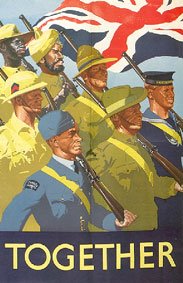

They whom this scroll commemorates were numbered among those since September 11, 2001, who, at the call of Queen, Country and Regiment, left all that was dear to them, endured hardness, faced danger, and finally passed out of the sight of men by the path of duty and self-sacrifice, giving up their own lives that others might live in freedom. Let those who come after see to it that their names be not forgotten.
[+] HONOURING OUR VETS ON THE 150TH ANNIVERSARY OF THE VICTORIA CROSS (1856 - 2006)
- The Victoria Cross Society
- Victoria Cross Wikipedia
- Living Recipients
- Recipients by Campaign
- Recipients by Nationality
- Recipients by Military Unit
- History of the Victoria Cross
- Canadian Victoria Cross
- Australian Victoria Cross
- Canadian Recipients
- New Zealand Recipients
- Australian Bravery Association
- Victoria Cross Research
- Victoria Cross and George Cross Gallery

Honouring Captain Sir Richard Francis Burton, KCMG, FRGS, (March 19, 1821 – October 20, 1890)
 Sir Richard Francis Burton was an English explorer, translator, writer, soldier, orientalist, ethnologist, linguist, poet, hypnotist, fencer and diplomat. He was known for his travels and explorations within Asia and Africa as well as his extraordinary knowledge of languages and cultures. According to one count, he spoke twenty-nine European, Asian, and African languages.[1]
Sir Richard Francis Burton was an English explorer, translator, writer, soldier, orientalist, ethnologist, linguist, poet, hypnotist, fencer and diplomat. He was known for his travels and explorations within Asia and Africa as well as his extraordinary knowledge of languages and cultures. According to one count, he spoke twenty-nine European, Asian, and African languages.[1]Burton's best-known achievements include travelling in disguise to Mecca, making an un-bowdlerised translation of The Book of the Thousand Nights and a Night (the collection is more commonly called The Arabian Nights in English because of Andrew Lang's abridgement) and the Kama Sutra and journeying with John Hanning Speke to discover the Great Lakes of Africa in search of the source of the Nile. He was a prolific author and wrote numerous books and scholarly articles about subjects including travel, fencing and ethnography.
He was a captain in the army of the East India Company serving in India (and later, briefly, in the Crimean War). Following this he was engaged by the Royal Geographical Society to explore the east coast of Africa and led an expedition which discovered Lake Tanganyika. In later life he served as British consul in Fernando Po, Damascus and, finally, Trieste. He was a Fellow of the Royal Geographical Society and was awarded a knighthood (KCMG) in 1886. Burton was considered a controversial figure in his day and, while some considered him a hero, others considered him a scoundrel.
LINKS: Burton on Wikipedia; Homepage: Sir Richard F. Burton on the WebPOSTED BY: The Monarchist AT 1:52 p.m. | LINKS |

